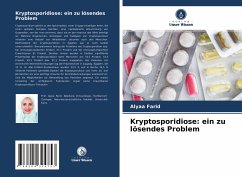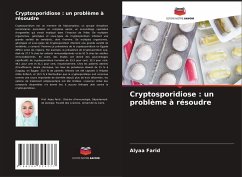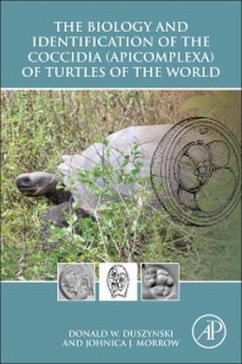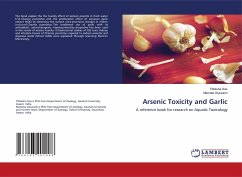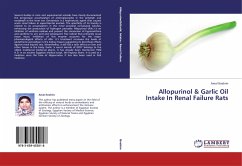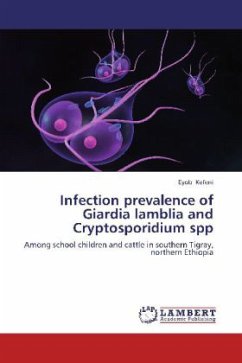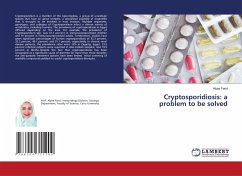
Cryptosporidiosis: a problem to be solved
Versandkostenfrei!
Versandfertig in 6-10 Tagen
36,99 €
inkl. MwSt.

PAYBACK Punkte
18 °P sammeln!
Cryptosporidium is a member of the Apicomplexa, a group of unicellular species that have an apical complex, a specialized assembly of organelles that is thought to be involved in host invasion. Multiple organisms, genotypes, and subtypes of Cryptosporidium infect a diverse variety of vertebrates, including humans. The prevalence of cryptosporidiosis in Egypt differed depending on the area. For example, the prevalence of Cryptosporidium spp. was 37.7 percent in immunocompromised children and 91 percent in immunocompromised adults. Furthermore, studies have given significant percentages of human...
Cryptosporidium is a member of the Apicomplexa, a group of unicellular species that have an apical complex, a specialized assembly of organelles that is thought to be involved in host invasion. Multiple organisms, genotypes, and subtypes of Cryptosporidium infect a diverse variety of vertebrates, including humans. The prevalence of cryptosporidiosis in Egypt differed depending on the area. For example, the prevalence of Cryptosporidium spp. was 37.7 percent in immunocompromised children and 91 percent in immunocompromised adults. Furthermore, studies have given significant percentages of human cryptosporidiosis of 33.3 percent, 33.3 percent, 49.1 percent, and 31.1 percent, respectively. In chronic renal disease patients, the prevalence rates were 15% in Zagazig, Egypt. 23.5 percent infected patients were reported in Abo El-Resh Hospital, and 19.5 percent in Benha. Despite the fact that cryptosporidiosis has been recognized as a significant cause of diarrhea for more than three decades; the anti-parasitic treatment options have been limited. Initial screening of available compounds yielded no useful cryptosporidiosis therapies.



